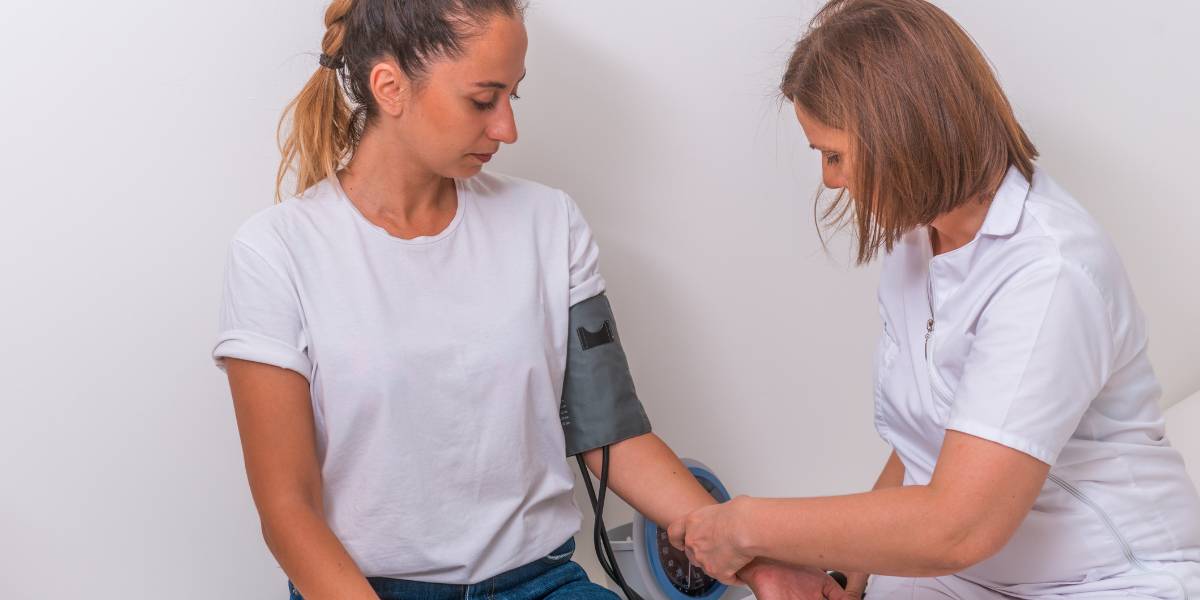Approximately 170,000 young adults are unaware that they are living with or at risk of developing high blood pressure, data from the Office for National Statistics (ONS) has indicated.
New research indicates that five in 100 males and one in 100 females between the age of 16 to 24 have high blood pressure, a condition which is strongly associated with stroke and heart attacks.
Experts are now urging people to frequently have their blood pressure checked as the condition can develop at any age.
- High blood pressure linked to traffic noise and air pollution
- Neuroticism triggered by high blood pressure
Chris Shine, from the ONS’s analytical hub, said: “We see that there are considerable numbers of younger, healthier people who are undiagnosed.
“It may be that this group are unaware they have the condition because they are less likely to access healthcare if they are otherwise well.”
He added: “These results will provide valuable insight for health services and those seeking to improve outcomes for what is one of the most common causes of premature death, especially as we know that the sooner hypertension is identified, the more effectively it can be managed and treated among all ages.”
According to the data, 30% of Brits have high blood pressure, but a lot of these are yet to be diagnosed.
High blood pressure is linked to smoking, being inactive, drinking excessive amounts of alcohol, being obese or overweight and following an unhealthy diet.
Recent research shows that 60% of men and 26% of women between the age of 16 and 24 are unaware they are living with high blood pressure, while 55% of males and 44% of females aged 25 to 34 years-old are living with the condition undiagnosed.
This compares to 17% of males and 21% of females aged 75 years and over who do not know they are living with high blood pressure, the results have reported.
The study reveals that 4% of young women and 7% of young men involved in the trial were living with high blood pressure.
However, 26% of those women and 66% of the men were living with undiagnosed high blood pressure, according to the research.
Dr Pauline Swift, from the charity Blood Pressure UK, said: “In recent years we have seen an increase in younger patients with high blood pressure, often as a result of poor diet, consuming too much salt and lack of exercise leading to weight gain.
“If you start making small changes to your lifestyle when you are young, such as eating less salt, more fruit and vegetables and taking more exercise to maintain a healthy weight, then you are more likely to stay healthier and prevent strokes, heart disease and chronic kidney disease.”
She added: “High blood pressure kills thousands of people every year in the UK and is almost entirely preventable.
“Everyone needs to take control of their health by checking their blood pressure either at home, at a pharmacy or with their practice nurse. This could save your life.”
- Low blood pressure combats dementia
- Study finds getting 8,200 steps a day reduces risk of high blood pressure, sleep apnoea and depression
Prof Bryan Williams, President of the International Society of Hypertension and a specialist at University College London Hospitals NHS Foundation Trust in London, said: “I just don’t think people realise just how dangerous untreated high blood pressure can be.
“It is estimated that high blood pressure causes 10 million deaths every year across the world. To put this in perspective, that is more deaths globally every year than the total number of global deaths caused by COVID over three years.”
He concluded: “The good news is that once high blood pressure is properly diagnosed, for most people it is easy to treat and control, especially if it is diagnosed early.
“If I have a simple message it is, get your blood pressure checked and don’t ignore it if it is high.”





